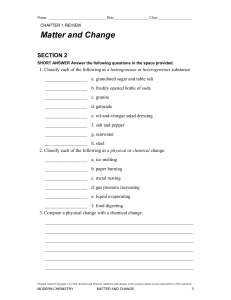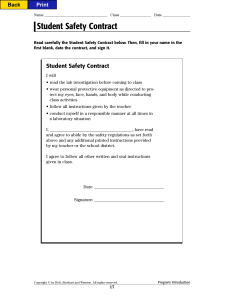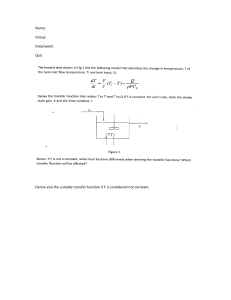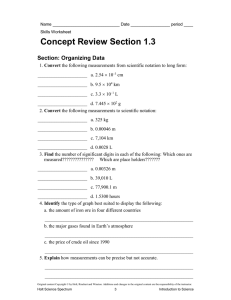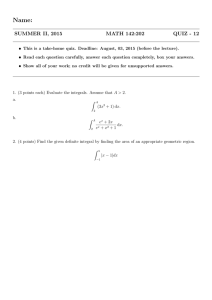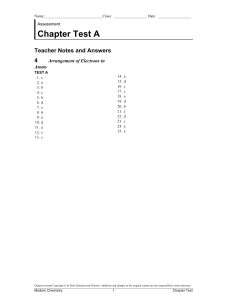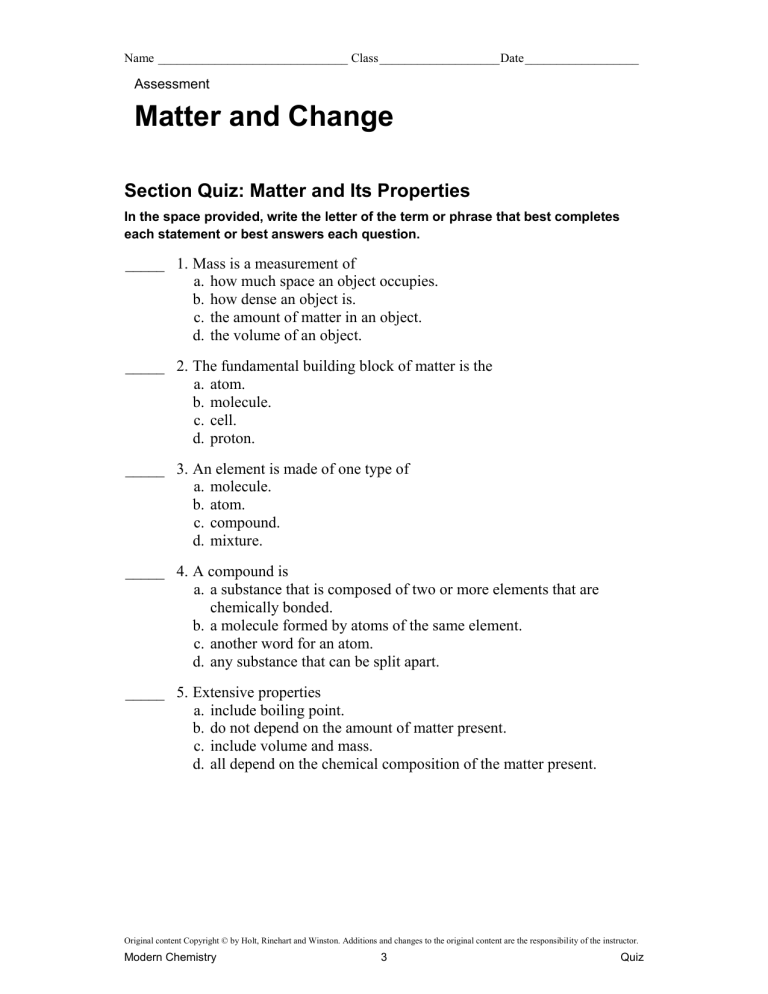
Name ______________________________ Class ___________________ Date __________________ Assessment Matter and Change Section Quiz: Matter and Its Properties In the space provided, write the letter of the term or phrase that best completes each statement or best answers each question. _____ 1. Mass is a measurement of a. how much space an object occupies. b. how dense an object is. c. the amount of matter in an object. d. the volume of an object. _____ 2. The fundamental building block of matter is the a. atom. b. molecule. c. cell. d. proton. _____ 3. An element is made of one type of a. molecule. b. atom. c. compound. d. mixture. _____ 4. A compound is a. a substance that is composed of two or more elements that are chemically bonded. b. a molecule formed by atoms of the same element. c. another word for an atom. d. any substance that can be split apart. _____ 5. Extensive properties a. include boiling point. b. do not depend on the amount of matter present. c. include volume and mass. d. all depend on the chemical composition of the matter present. Original content Copyright © by Holt, Rinehart and Winston. Additions and changes to the original content are the responsibility of the instructor. Modern Chemistry 3 Quiz Name ______________________________ Class ___________________ Date __________________ Section Quiz continued _____ 6. Which of the following is an intensive property of matter? a. volume b. mass c. energy content d. density _____ 7. A change in a substance that does not involve a change in the identity of the substance is called a(n) a. chemical change. b. physical change. c. extensive property. d. intensive property. _____ 8. In every chemical change, two or more reactants form at least one a. product. b. gas. c. precipitate. d. reaction. _____ 9. Which is not true about the liquid state of matter? a. The liquid state has a definite volume and a definite shape. b. The liquid state takes on the shape of its container. c. The liquid state has a definite volume and an indefinite shape. d. The particles in a liquid can easily move past each other. _____ 10. If a mixture is uniform in composition, it is considered to be a. heterogeneous. b. molecular. c. homogeneous. d. elemental. Original content Copyright © by Holt, Rinehart and Winston. Additions and changes to the original content are the responsibility of the instructor. Modern Chemistry 4 Quiz
